Hangzhou, the capital of Zhejiang Province and ancient Southern Song capital, has long been hailed as “Heaven on Earth.” Known for the poetic beauty of West Lake, verdant tea fields, and its role as a hub of China’s digital economy, the city seamlessly blends history with modern life. Whether you’re gliding across West Lake in a wooden boat, sipping freshly brewed Longjing tea in a hillside pavilion, or strolling historic Hefang Street, Hangzhou enchants every traveler with a timeless charm. From the ornate Lingyin Temple to the futuristic skyline of Qianjiang New Town, the city offers a tapestry of old and new.
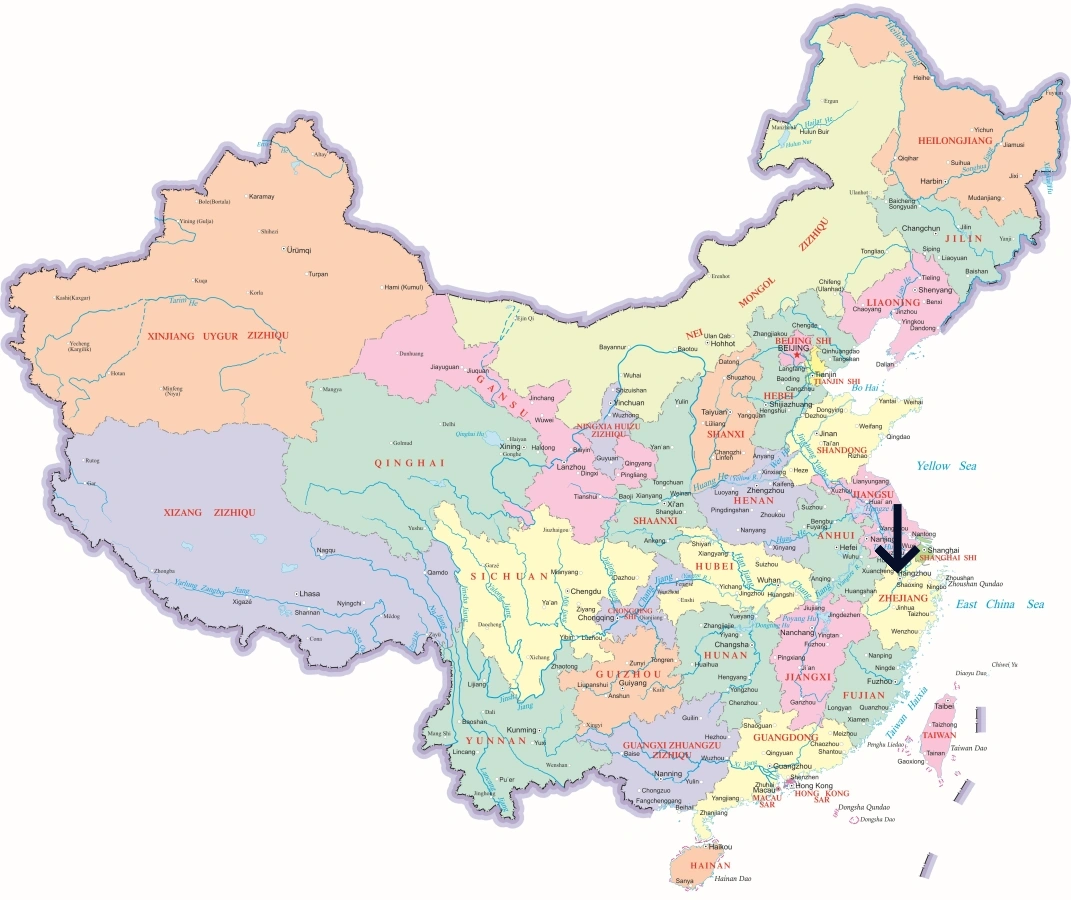
Hangzhou’s highlights range from UNESCO World Heritage landscapes to bustling shopping streets. Cruise on West Lake and admire its iconic “Three Pools Mirroring the Moon,” wander Lingyin Temple and the nearby Feilai Peak grottoes, and explore the waterways of Xixi National Wetland Park. Hefang Street serves up history and snacks in equal measure, while a day trip to Wuzhen Water Town reveals canal-side life unchanged for centuries. For sweeping views, hike up to Leifeng Pagoda or the tea-covered hills of Longjing Village.
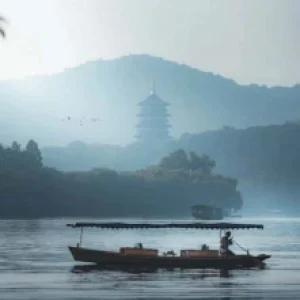
West Lake, a UNESCO World Heritage site in Hangzhou, is renowned for its serene beauty, classical gardens, pagodas, and willow-lined shores. A must-visit for culture and nature lovers.

Lingyin Temple, one of China’s most famous Buddhist temples, features grand halls, ancient pagodas, and the famous Feilai Peak grottoes. A peaceful retreat for history, culture, and spirituality.
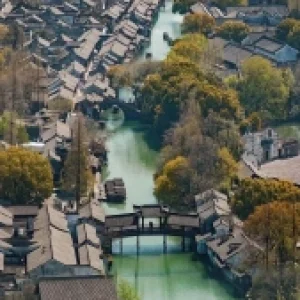
Wuzhen, a historic water town near Hangzhou, is famed for its canals, stone bridges, traditional houses, and vibrant local culture. A timeless destination showcasing China’s ancient river lifestyle.
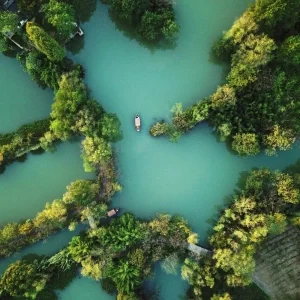
Xixi National Wetland Park blends natural beauty with cultural heritage, featuring waterways, traditional villages, and abundant wildlife. It is China’s first national wetland park, perfect for eco-tourism.
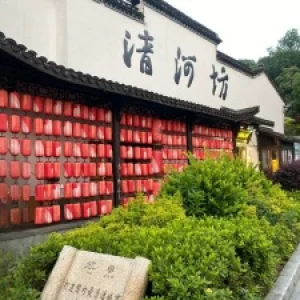
Hefang Street, a historic pedestrian street in Hangzhou, is known for traditional shops, local snacks, and Chinese medicine stores. It offers travelers a glimpse of Ming and Qing-era charm.
Famed for its delicate Jiangnan flavors, Hangzhou cuisine is fresh, mellow, and rich in seasonal ingredients. Don’t miss West Lake Vinegar Fish, tender and tangy, or Dongpo Pork, braised to melt-in-your-mouth perfection. Longjing Tea Shrimp combines local tea with river shrimp, while Pian’er Chuan Noodles comfort with bamboo shoots and preserved greens. Street snacks like Cong Bao Hui (scallion pancake wrap) and traditional Song’s Fish Soup keep visitors well-fed as they wander the city’s old streets.
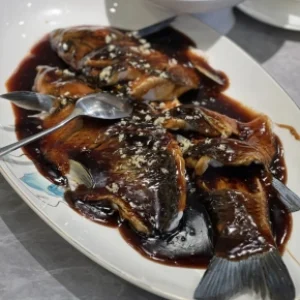
A classic Hangzhou dish featuring tender freshwater fish cooked in sweet and sour sauce. Famous for its delicate flavor, glossy presentation, and connection to West Lake’s culinary traditions.
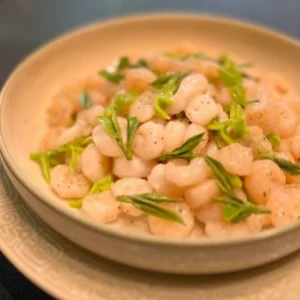
This Hangzhou delicacy combines fresh river shrimp with premium Longjing tea leaves. Light, aromatic, and elegant, it reflects the city’s refined culinary culture and tea heritage.
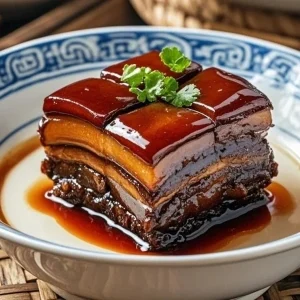
Named after poet Su Dongpo, this braised pork belly dish is slow-cooked until tender. Rich, savory, and slightly sweet, it symbolizes Hangzhou’s deep culinary history and artistry.
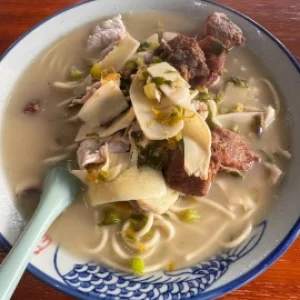
A signature Hangzhou noodle soup made with bamboo shoots, preserved vegetables, and pork slices. Comforting, flavorful, and beloved by locals, it embodies authentic Zhejiang home-style cooking.
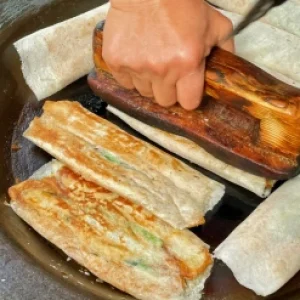
A popular Hangzhou street snack: fried dough wrapped with crispy scallions and sweet sauce. Savory, crunchy, and aromatic, it offers travelers a true taste of local street food.
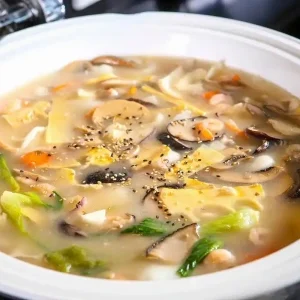
A traditional Hangzhou dish dating back to the Southern Song Dynasty. Made with shredded fish in thick soup, it is delicate, smooth, and cherished for its royal culinary origin.
A modern metro system (10+ lines and growing), reliable buses, and inexpensive taxis make getting around Hangzhou simple. The city is also a key stop on China’s high-speed rail, connecting to Shanghai in under 1 hour. Hangzhou Xiaoshan International Airport (HGH) links to major domestic and international destinations. For local rides, use Didi for taxis or grab a shared bike near West Lake for a leisurely ride along willow-shaded paths.
Upscale hotels like Four Seasons Hangzhou at West Lake and Park Hyatt offer lakeside luxury with garden views. Travelers seeking convenience choose central areas around Wulin Square or Hubin District, close to shopping and nightlife. Budget-friendly guesthouses cluster near Hefang Street, while tea lovers may opt for boutique stays in Longjing Village, waking up to rolling tea fields and birdsong.
With scenic spots, cuisine, transport, and hotels covered, design an itinerary that balances culture and relaxation. Spend mornings rowing on West Lake, afternoons sipping Longjing tea in traditional pavilions, and evenings exploring lantern-lit Hefang Street. Catch an Impression West Lake show, watch the sunset over Leifeng Pagoda, and wander the quiet canals of Wuzhen on a day trip. Hangzhou offers both serene escapes and vibrant urban energy—experiences you’ll carry long after your visit.
The best time to visit Hangzhou is in spring from March to May or in autumn from September to November, when the weather is mild and skies are often clear. Try to avoid Golden Week in early October, as major attractions become extremely crowded. While most restaurants and shops accept mobile payments like Alipay and WeChat Pay, it’s wise to keep some small bills handy for street snacks and traditional markets. Rain showers can happen at any time of year, so an umbrella is a useful companion, especially during the hot and humid summer months or the damp, chilly winters. For a truly unforgettable experience, take a boat ride on West Lake at dusk, when the reflections of pagodas and willow trees shimmer in the evening glow.
Hangzhou, the capital of Zhejiang Province, covers about 16,850 sq km. It is one of China’s most dynamic cities, famous for West Lake and digital economy growth. The permanent population is approximately 12.4 million.
Here’s a breakdown by district:
Note: Some districts were recently restructured, so population and boundaries may vary slightly.
Hangzhou has a humid subtropical climate, with four distinct seasons: hot, humid summers and chilly, damp winters, plus mild spring and autumn. It often experiences plum rains in early summer and occasional typhoons.
Here’s what to expect month by month:
Best travel season: March to May and September to November.
Here are the postal and telephone codes for major districts in Hangzhou:
Explore detailed travel guides for China’s most popular cities, covering attractions, local food, accommodations, and transportation tips.

 English (US)
English (US)